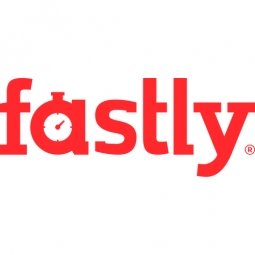技术
- 应用基础设施与中间件 - 事件驱动型应用
- 基础设施即服务 (IaaS) - 虚拟私有云
适用行业
- 水泥
- 国家安全与国防
适用功能
- 产品研发
用例
- 篡改检测
- 交通监控
关于客户
Maritz 是一家控股公司,其业务提供市场和客户研究;客户忠诚度、销售激励以及员工奖励和认可计划;为财富 500 强公司及其他公司提供会议、活动和旅行奖励服务。由于有如此多不同的业务部门和应用程序伴随着不同的技术堆栈,团队需要找到一种产品来部署在当前和未来的托管环境中,无论是物理还是虚拟、本地还是云。凭借之前使用需要大量手动操作的开源软件的经验,Maritz 一直在寻求易用性,包括自动阻止和简单部署。
挑战
Maritz 内的多个业务部门接受信用卡信息,因此必须每年报告 PCI DSS 合规性。为了增强 Maritz 的安全状况以支持 PCI DSS 要求 6.6,该团队实施了 Web 应用程序防火墙,作为 Maritz 托管的 PCI 环境的附加安全层。
解决方案
Maritz 依靠 Fastly Next-Gen WAF(由 Signal Sciences 提供支持)来保护跨多个业务部门的 90% 的总应用程序。最初将 Signal Sciences 部署到其企业应用程序覆盖范围的 5% 后,此次部署非常成功,以至于他们正在扩展到涵盖多个业务部门的总应用程序的 90%。
运营影响
数量效益

Case Study missing?
Start adding your own!
Register with your work email and create a new case study profile for your business.
相关案例.

Case Study
System 800xA at Indian Cement Plants
Chettinad Cement recognized that further efficiencies could be achieved in its cement manufacturing process. It looked to investing in comprehensive operational and control technologies to manage and derive productivity and energy efficiency gains from the assets on Line 2, their second plant in India.

Case Study
Data Capture for Afghanistan Forces
Electronic equipments on the field of Afghanistan provided information on the status of the vehicle and to identify potential threats surrounding it to the British Force. The monitoring and interpretation of this data requires robust and sophisticated digitization for data capture and communication.

Case Study
Digital Transformation of Atlanta Grout & Tile: An IoT Case Study
Atlanta Grout & Tile, a Tile, Stone & Grout restoration company based in Woodstock, Georgia, was facing challenges with its traditional business model. Despite steady growth over the years, the company was falling behind the web revolution and missing out on the opportunity to tap into a new consumer base. They were using independent software from different vendors for each of their department information and workforce management. This resulted in a lot of manual work on excel and the need to export/import data between different systems. This not only increased overhead costs but also slowed down their response to clients. The company also had to prepare numerous reports manually and lacked access to customer trends for effective business decision-making.

Case Study
Major Aerospace Company Automates Asset Management
The O&M division of an aerospace and global security company was using spreadsheets to manually track more than 3,000 assets assigned to students and staff. Maintaining audit trails for this high volume of equipment became increasingly time-consuming and challenging. The chore involved knowing precisely what equipment was on hand, what had been issued, its location and the name of the custodial owner of each item. Every aspect of this task was carried owner of each item. Every aspect of this task was carried out by individuals with spreadsheets. Manually documenting the full lifecycle of each asset added to the burden. This included tracking maintenance requirements and records, incidents and damages, repairs, calibrations, depreciation, and end-of-life data.

Case Study
Revolutionizing Construction Equipment Rental: A Case Study on ProsRent and ENO8
ProsRent, a startup that won the 'Best Financial Opportunity' and 'Best Pitch' at CodeLaunch 2016, aimed to revolutionize the way construction professionals source and rent heavy equipment. In the construction industry, project managers and contractors typically rent heavy equipment from supply companies. However, predicting inventory can be challenging, and finding the required equipment at the right time and place can be a hassle. If the preferred vendor doesn't have the required equipment, it results in wasted time and money in searching for it, often leading to higher costs due to non-preferred rates and increased delivery costs if the vendor is located far from the job site. Suppliers, on the other hand, desired access to a wider base of trusted renters that they didn't have to vet themselves and wanted to offer dynamic rental pricing based on demand and availability in their market. ProsRent's challenge was to produce a minimum viable product that was fast and first to market but also strong enough to engender loyalty and repeat business from the target market.




